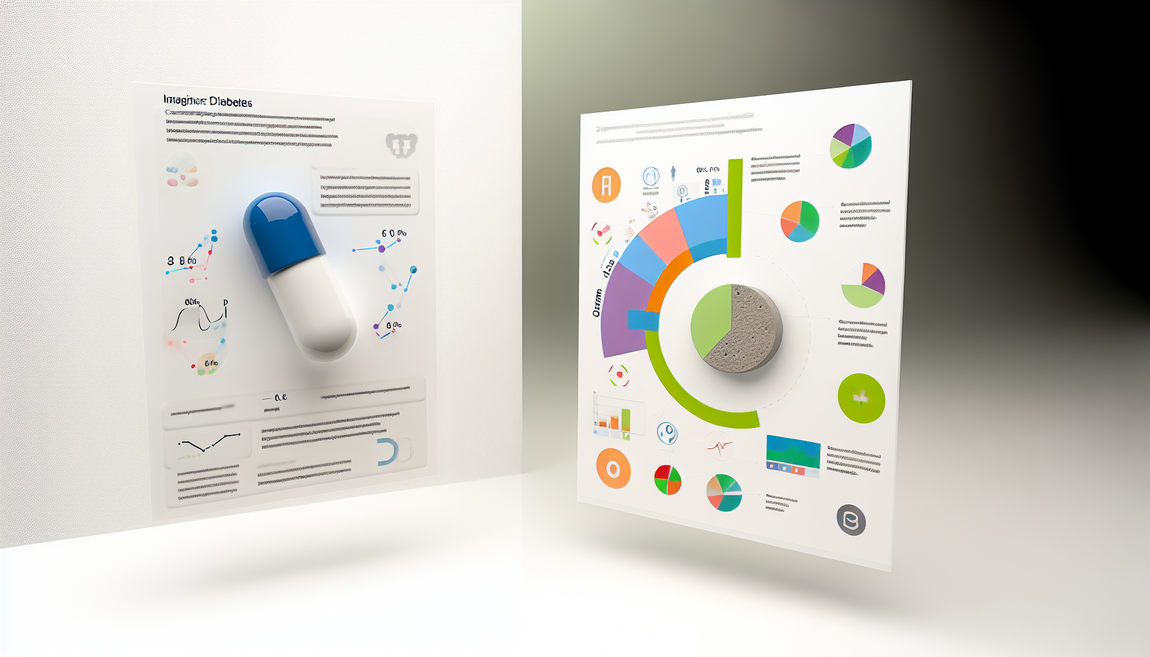
Ozempic Vs. Zepbound: A Comparative Analysis of Diabetes Medications and Weight Loss Solutions
Ozempic: The Dual-Purpose Medication for Diabetes and Weight Loss
Ozempic (semaglutide) is a GLP-1 receptor agonist primarily used to manage type 2 diabetes. It works by enhancing insulin secretion in response to meals, reducing glucose production in the liver, and promoting satiety, thereby helping with weight management as well. Clinical studies have shown its efficacy in lowering HbA1c levels and aiding in weight loss, making it a dual-purpose medication [Source: National Institutes of Health].
Zepbound: A New Player in Weight Management
Zepbound is another medication approved for weight management in individuals with obesity or overweight. It combines multiple mechanisms to help control appetite and metabolism, ultimately leading to significant weight reduction. It’s particularly beneficial for those struggling to lose weight through traditional diet and exercise alone, with recent studies indicating substantial weight loss results [Source: FDA].
Mechanisms of Action: Understanding the Diabetes Medications
The mechanisms of action for diabetes medications that also support weight loss primarily involve two classes: GLP-1 receptor agonists and SGLT2 inhibitors.
GLP-1 Receptor Agonists: Medications such as semaglutide (Ozempic) and liraglutide (Victoza) work by mimicking the glucagon-like peptide-1, a hormone that promotes insulin secretion in response to meals while suppressing glucagon release. This increases satiety and slows gastric emptying, leading to reduced food intake and subsequent weight loss (Source: NIH). Studies show that these medications can lead to significant weight loss, with some patients losing over 15% of their body weight (Source: NIH).
SGLT2 Inhibitors: Medications such as empagliflozin (Jardiance) and canagliflozin (Invokana) inhibit the sodium-glucose cotransporter 2 in the kidneys, blocking glucose reabsorption and promoting its excretion in urine. This mechanism not only helps lower blood glucose levels but also results in weight loss due to the loss of calories in the urine. Research indicates that these drugs can lead to weight reductions of about 5-10% (Source: NIH).
Both classes of medications provide beneficial outcomes for diabetes management and present practical weight loss options, making them vital tools in treating obesity in diabetic patients. For a deeper dive into related health topics, check this article on heart health and skin care.
Comparative Effectiveness of Ozempic and Zepbound
Ozempic (semaglutide) and Zepbound (zebrasig) have emerged as significant players in diabetes management, each demonstrating varying clinical effectiveness and patient outcomes in recent studies.
Ozempic has been shown to significantly reduce HbA1c levels and body weight in type 2 diabetes patients. In a 2021 trial, participants using Ozempic achieved an average HbA1c reduction of 1.5% after 56 weeks, alongside a weight loss of approximately 15% in some cases [Source: NIH]. Moreover, the drug has a favorable safety profile, although gastrointestinal side effects like nausea are commonly reported.
Zepbound’s recent clinical trials indicate comparable efficacy, with patients experiencing significant reductions in HbA1c levels. In a head-to-head study, Zepbound reduced HbA1c by an average of 1.3% over a one-year period [Source: Diabetes Care]. Like Ozempic, Zepbound also supports weight loss, although detailed comparative data is still emerging.
Patient outcomes are crucial, with both medications improving overall quality of life. Many patients reported better glycemic control and reduced hunger, facilitating healthier eating habits. However, the choice between the two may depend on individual patient responses and tolerance levels to side effects.
In conclusion, while Ozempic has a longer track record of substantial weight loss and HbA1c reduction, Zepbound is gaining traction as a viable alternative with promising efficacy. Ongoing research will further illuminate the nuances of their clinical comparisons as new data becomes available.
For more insights on diabetes management, check out this article discussing dietary impacts on diabetes and overall health.
The Impact of Weight Loss Medications on Metabolism
Weight loss medications can significantly influence metabolism and help individuals reduce weight, but their efficacy and safety depend on various factors. Medications such as orlistat, phentermine, and newer agents like liraglutide and semaglutide operate through different mechanisms to promote weight loss. For instance, orlistat inhibits fat absorption in the intestines, while semaglutide mimics a hormone that facilitates appetite regulation and increases energy expenditure.
The metabolic impact of these medications varies. For instance, studies have shown that the use of GLP-1 receptor agonists (like liraglutide and semaglutide) not only helps in weight loss but can also enhance metabolic markers, including insulin sensitivity and lipid profiles [Source: NIH]. Conversely, medications like phentermine primarily suppress appetite and may have less favorable long-term metabolic effects.
Important factors to consider before starting a weight loss medication include a person’s medical history, potential side effects, and whether they are combined with lifestyle changes like diet and exercise. Long-term adherence and monitoring are crucial since some medications can lead to weight regain once treatment is stopped [Source: NIH].
Managing expectations about weight loss and understanding the medication’s role in conjunction with modifications in lifestyle and diet is vital. For those looking for a more comprehensive lifestyle approach, articles such as Tips for Making a Healthier Pizza at Home can provide practical insights that support ongoing weight management successfully.
Sources
- Diabetes Care – Head-to-Head Study Results for Zepbound
- FDA – Zepbound Approval for Weight Management
- National Institutes of Health – Understanding Ozempic
- NIH – Weight Regain After Stopping Medications
- NIH – Weight Loss with GLP-1 Receptor Agonists
- NIH – SGLT2 Inhibitors and Weight Loss
- NIH – Mechanisms of GLP-1 Receptor Agonists
- NIH – Enhancing Metabolic Markers with GLP-1
- NIH – Clinical Trials of Ozempic
“`








